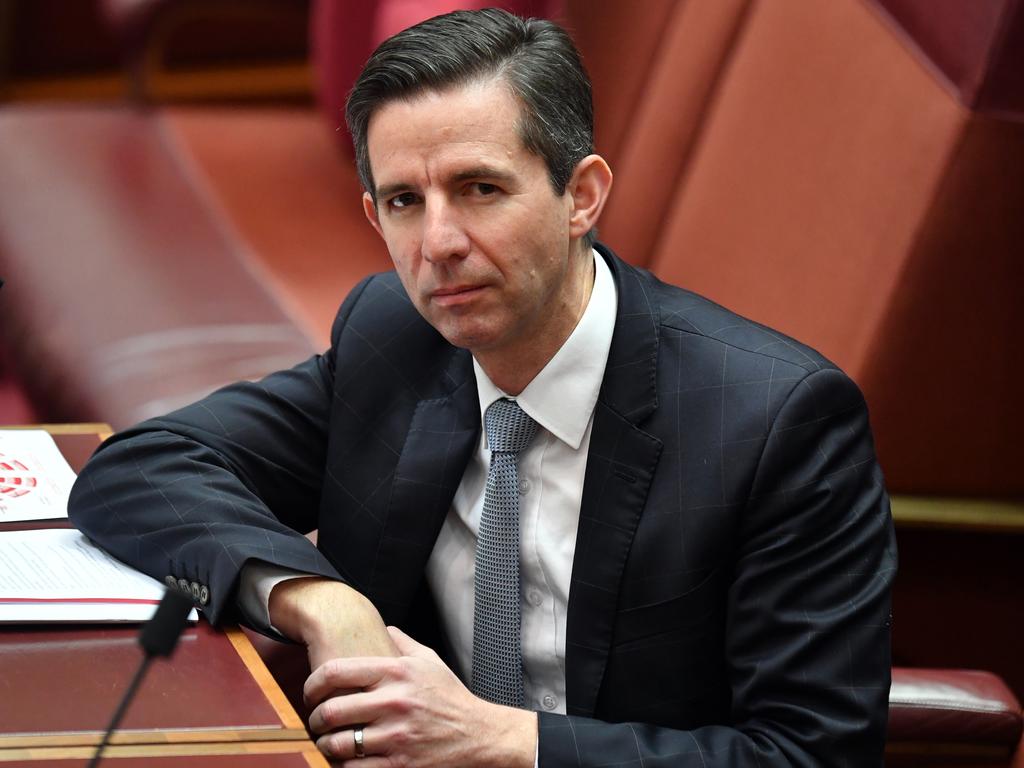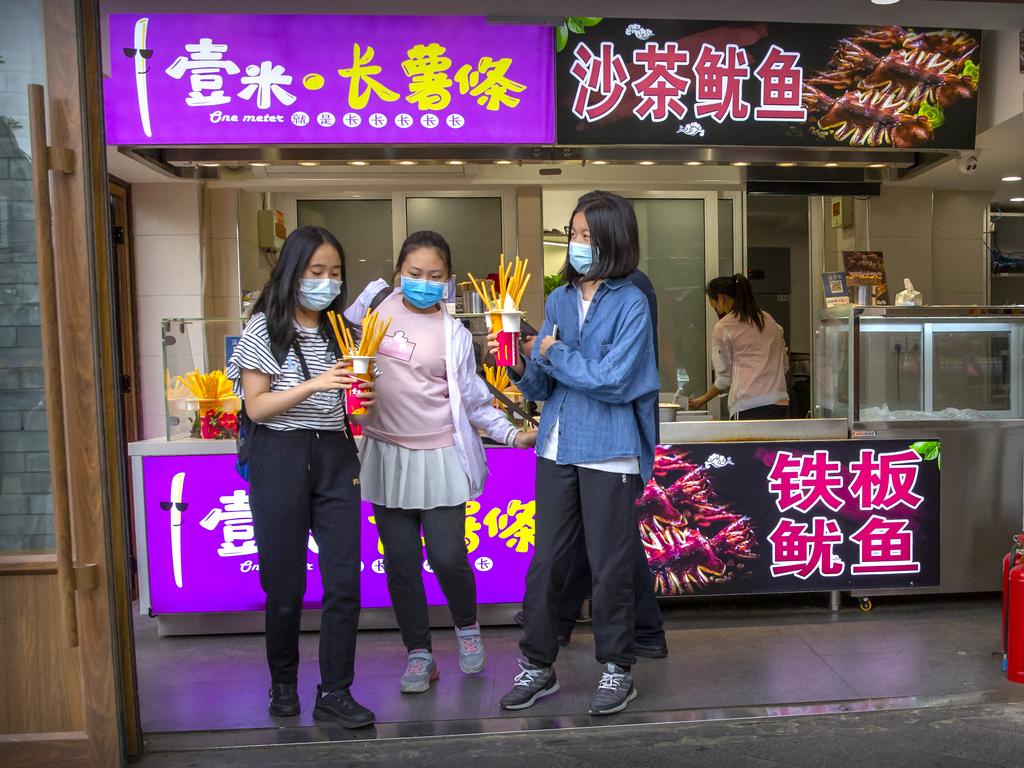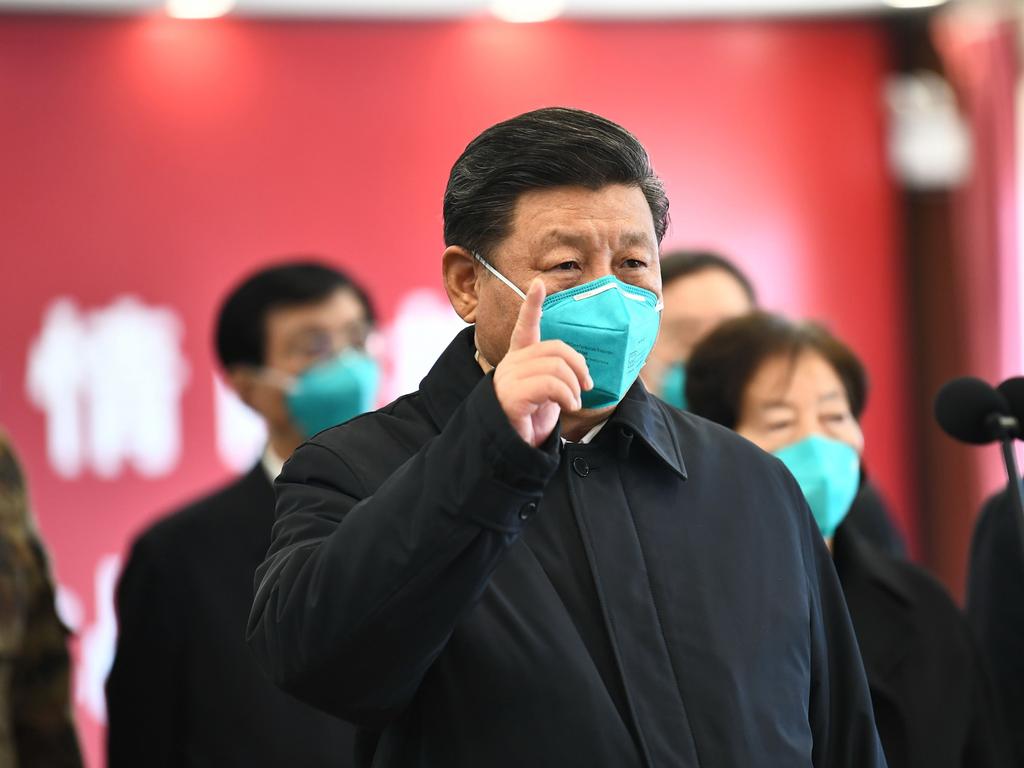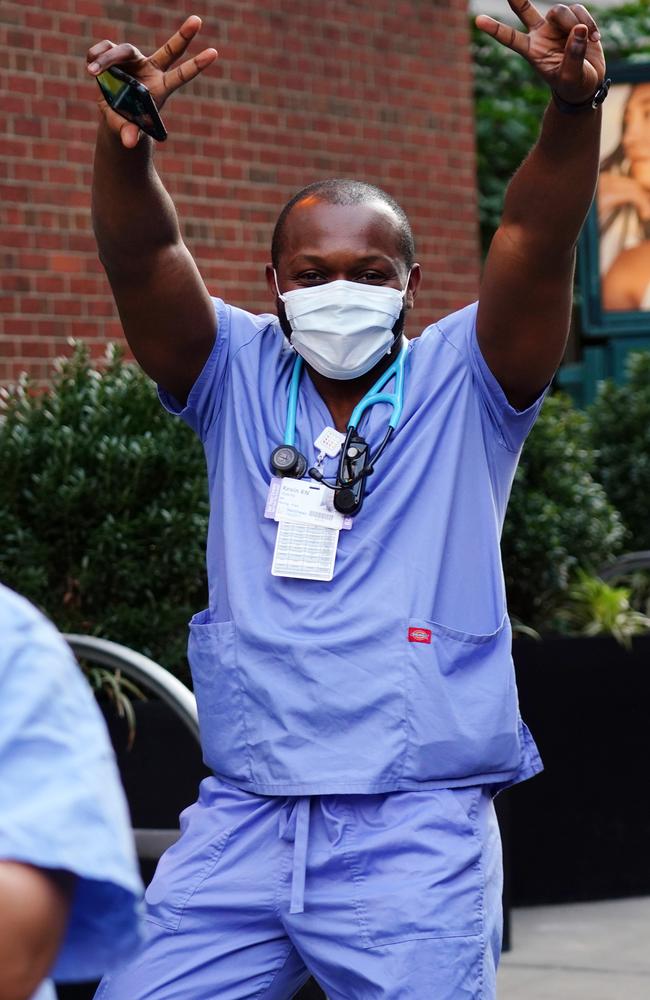62 nations back Australia’s push for a COVID-19 inquiry
A coalition of 62 countries is backing Australia’s call for an inquiry into the origins of the new coronavirus. It comes as Trade Minister Simon Birmingham’s request for a meeting with China went unanswered.
One million Australians tested for COVID-19
‘Let’s not have a party’: Aussies warned as lockdown is eased
Countries navigate lifting restrictions but fears persist
Australia’s call for an inquiry into how the coronavirus started has reportedly received the backing of 62 countries.
A draft resolution to be put to the World Health Assembly on Tuesday, obtained by The Australian, is backed by nations including India, Japan, the UK, Canada, New Zealand, Indonesia., Russia, Mexico, Brazil, and all 27 EU member states.
According to the newspaper, the resolution demands WHO director-general Dr Tedros Ghebreyesus “initiate at the earliest appropriate moment … a stepwise process of impartial, independent and comprehensive evaluation” of the international response to the pandemic, the actions of the WHO and its “timeline” of the pandemic.
It comes as Trade Minister Simon Birmingham tried to set up a phone call with his Chinese counterpart to sort out a growing trade rift between the two countries, but so far there has been no response.
China is threatening to slap a large tariff on Australian barley imports after it blocked beef imports from four abattoirs.

Such actions have come within weeks of Australia calling for an inquiry into the origins of the coronavirus pandemic, sparking a furious response from China.
“We’ve made a request for me to be able to have discussions with my Chinese counterpart,” Senator Birmingham told ABC television’s Insiders program today.
“That request has not been met with a call being accommodated at this stage.”
However, he said there has been lots of government-to-government communication and work continues through diplomatic levels.

He said the government has lodged a comprehensive response to China’s 18-month investigation into barley dumping, rejecting the suggestion that the Australian industry is subsidised.
“The idea that somehow the payments that the Australian government makes to upgrade irrigation infrastructure in the Murray-Darling Basin in any way impacts on barley prices in China, just doesn’t stand the test of any analysis,” the minister said.
“Our barley that goes to China is largely a product of dry land irrigation, predominantly coming out of Western Australia and the west coast of South Australia. It’s not coming out of the irrigated areas of the Murray-Darling Basin.”
He said he may be forced to take the issue to the World Trade Organisation if China presses ahead with its threat.
Australia has used the WTO to settle disputes as an independent umpire in the past with other valued partners around the world in recent years – with Canada in relation to certain wine practices and India over sugar.

China is Australia’s number one trading partner, but Senator Birmingham said it was up to businesses to determine who they sold their goods and services to.
“I would expect that many Australian businesses off the back of some unpredictable regulatory interventions, such as those we’ve seen in the last couple of weeks, would start to consider whether the risk profile has changed and may, therefore, look at other markets,” he said.
Prime Minister Scott Morrison said the push for an independent inquiry into the COVID-19 crisis is “completely unremarkable” and Australia will stand its ground.
But China’s Foreign Minister Wang Yi has lashed out at foreign politicians for politicising the epidemic.
Former Labor trade minister Craig Emerson thought the Australian government was making a “perfectly reasonable proposition”.
“I mean, is (China) serious that we don’t want to know how the coronavirus started and got spread?” Dr Emerson told ABC television.
“It is not anti-China, it is pro-science, so that we learn about this particular virus on the assumption that at some time in the future, hopefully a long time into the future, there will be more outbreaks of different viruses.”
RECOVERY POSES NEW OPPORTUNITIES
A key member of the Morrison government’s co-ordination team through the coronavirus crisis believes the economic recovery in Australia will open up opportunities, particularly in manufacturing.
But National COVID-19 Co-ordination Commission chair Neville Powell warns some parts of the economy will take longer to recover than others, particularly businesses associated with international travel.
He said the crisis had shown Australia had become very reliant on international supply chains to the detriment of its own industry.
“We have an opportunity with a relatively low Australian dollar, disruptive global supply chains and the low cost of capital to do something about that as we come out of the crisis and to generate a lot of jobs for Australians,” he told Sky News today.
“We can produce more product here and become more self sufficient, then we don’t rely as heavily on international supply chains to support our country and provide that sovereign capability that we need.”
The commission was set up to help fix supply chains as the pandemic gripped the global economy and secure personal protective equipment for medical workers.
Mr Powell said the commission was now working closely with businesses to help develop plans as to how they can work with the virus and getting them ready to introduce social distancing and personal hygiene in their workplaces, while putting in place response plans should outbreaks develop.
Figures last week showed the devastating impact COVID-19 has had on the economy with nearly 600,000 people losing their jobs in April, by far the biggest one-month fall in employment on record.
The jobless rate rose to a five-year high of 6.2 per cent, but Treasury expects it will rise even further to 10 per cent in the coming months.
Even so, Mr Powell said some businesses have been able to operate reasonably well during the crisis, and as restrictions lift, hospitality and the arts will also come back – both big employers.
“Some of the parts that are going to take longer is anything associated with international travel, that’s going to take the longest to come back,” he said.
It comes as few new coronavirus cases were recorded across the country as Australians got used to their the new-found freedom following the easing of restrictions.
LOCKDOWN RESTRICTIONS EASE ACROSS USA
Coronavirus lockdown restrictions have begun to ease across the United States and Europe, but some health experts and global leaders fear a second wave of coronavirus infections will hit during the northern autumn and winter as people come into closer contact once restrictions have eased.
The US centre of the pandemic, New York, has reported a drop in deaths for the sixth consecutive day, but the nation lacks a plan concerning testing, possible cures, or consistent approaches to coming out of lockdown.
According to the New York Post, Boston’s mayor has put his plans for reopening the city on hold after a new study revealed that nearly 90 per cent of residents haven’t been exposed to the coronavirus.
Mayor Marty Walsh had intended to gradually lift Boston’s lockdown starting on Monday local time but changed his mind when he learned of the findings.
“We can draw two preliminary conclusions from the results of this study,” Mr Walsh said at a news conference.
“First, that the actions we took early on in this pandemic made a real difference in slowing the spread and, second, that the majority of our population still have not been exposed to the virus. This underscores what we already know, that we have to move cautiously and stay focused on what got us this far.”

An Associated Press analysis found that 41 of America’s 50 states fall short of the COVID-19 testing levels that experts say are necessary to avoid another wave of outbreaks.
Rapid, widespread testing is considered essential to tracking and containing the coronavirus. The AP analysis is based on metrics developed by Harvard University’s Global Health Institute.
Harvard researchers have calculated that the US needs to test at least 900,000 people daily to reopen the economy safely, nearly three times the current tally of about 360,000, according to figures compiled by the COVID Tracking Project website.
Among the states falling short are Texas and Georgia, which have reopened shopping malls, barber shops and other businesses.
“I really do feel there are dangers here to opening up without enough tests, but I don’t feel it’s a uniform danger everywhere in the country,” said Dr. Ashish Jha, director of Harvard’s Global Health Institute.
New York State is moving more cautiously. It will allow smaller cities and rural regions spared the brunt of the outbreak to reopen first.
The first wave will include retail – though only for kerbside or in-store pick-up – along with construction and manufacturing.
Gov. Andrew Cuomo also said beaches would reopen in time for next weekend’s Memorial Day holiday.
While Spain’s coronavirus deaths has dropped to their lowest figure in two months, Prime Minister Pedro Sachez has requested a one-month extension of the country’s state of emergency in order to ease into transition out of lockdown, lasting until late June.
ITALY EMERGES FROM LOCKDOWN
Italy has set a date to lift its COVID-19 travel restrictions as the country takes its first tentative steps to ease more than two months of lockdown.
Starting on June 3, Italy will again permit travel in and out of the country, as well as between regions, the BBC reported.
Italy, which has suffered more than 30,000 deaths from the virus so far, has slowly been easing lockdown restrictions.
The country allowed parks and factories to reopen on May 4.
Restaurants and other retailers will be allowed to reopen Monday.
Places of worship will also be allowed to resume services. In all cases people will be required to wear masks and adhere to strict social distancing guidelines.
Originally published as 62 nations back Australia’s push for a COVID-19 inquiry



